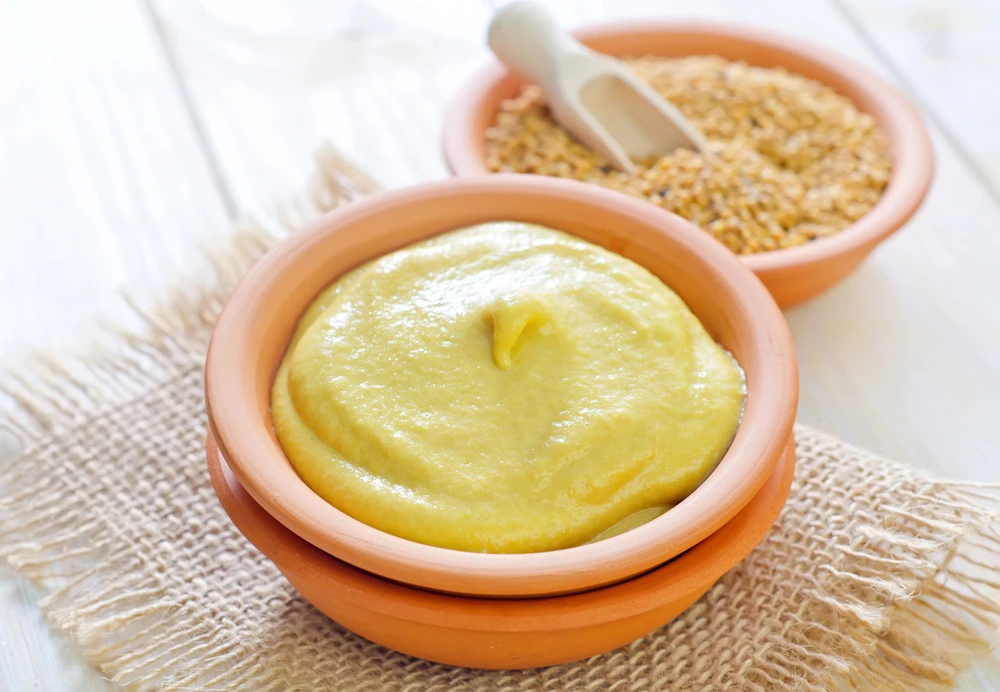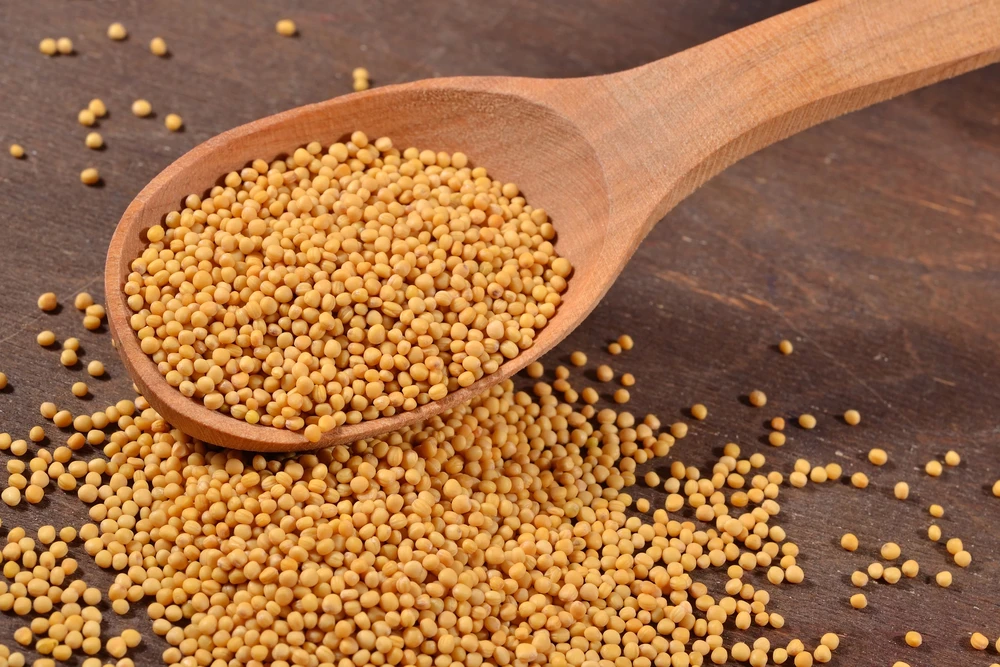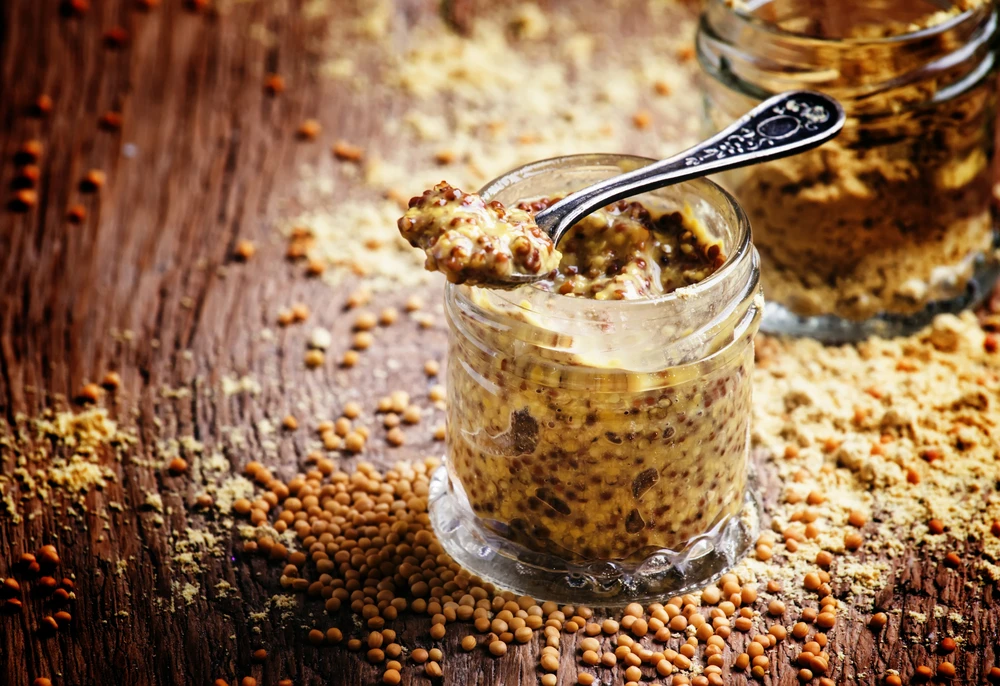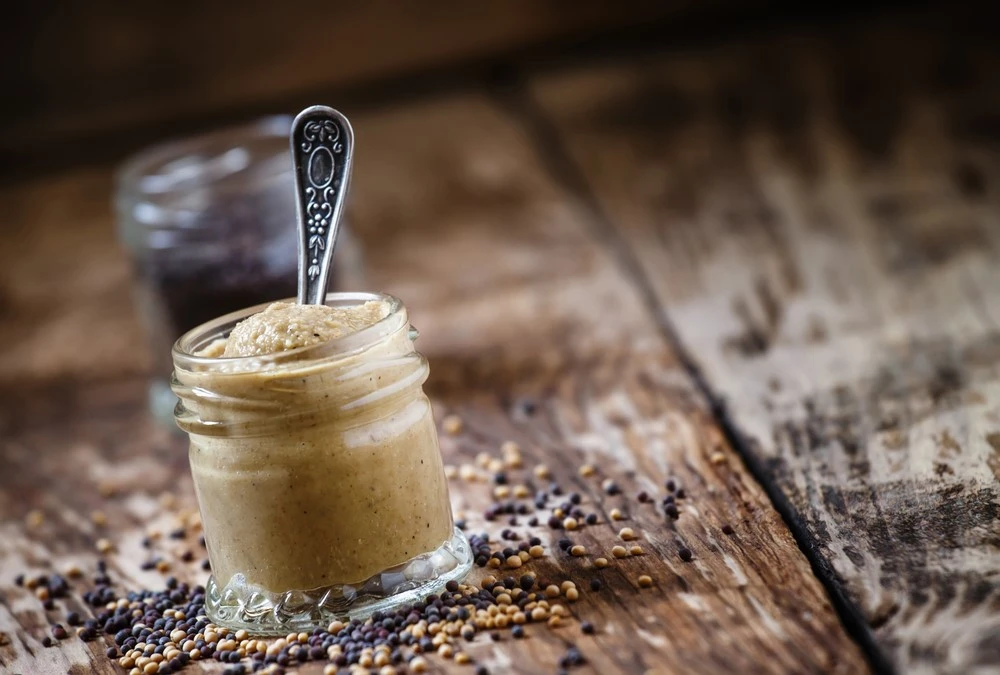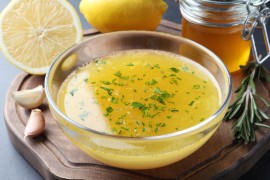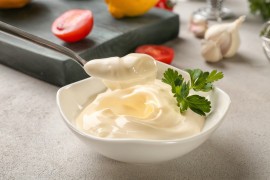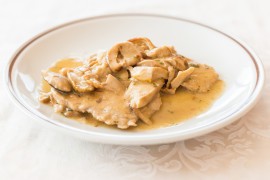A brief history of mustard.
Mustard is a seed that is ground with a little water and seasoned to make a kind of hot sauce. A molecule called allyl isothiocyanate makes it pungent when it comes into contact with mucous membranes.
Known to the Romans, it is very popular in the wine-producing regions of France, because vinegar is used in its composition. It was used in many dishes from the Middle Ages to the 18th century, and even Voltaire mentioned it in his writings.
The 4 typical French mustards
Dijon mustard
Dijon mustard, slightly bright yellow. Photo chosen by monsieurdefrance.com: tycoon via depositphotos.
This is the most common type in France. It's not necessarily made in Dijon, but it's made the Dijon way. In fact, in 1937, a court ruled that Dijon mustard was a production method and not necessarily linked to a particular terroir. Made from brown mustard seeds that are crushed and mixed with salt and vinegar, this mustard is particularly appreciated with meats. It's famous throughout France, and even elsewhere, since President Obama asked to taste it. I prefer it for my mayonnaise.
Mustard seeds. Used to make the condiment. Photo chosen by monsieurdefrance.com: Sveta615 via depositphotos.
Burgundy mustard
Indication Géographique Protégée, this is Dijon mustard at its very best. It's made in Dijon, with mustard seeds grown in Burgundy (and also in Ardèche). To Burgundy mustard seeds, we add a minimum of 25% Burgundy wine (aligotté or chardonnay).
Old-fashioned mustard
Recognizable by its small black seeds: old-fashioned mustard. photo chosen by monsieurdefrance.com: 5PH via depositphotos.
Even different from meaux mustard, it is made from unground mustard seeds. Flavored with a little spice, it's the perfect accompaniment to a fish dish, for example. It's also one of the best mustards for vinaigrettes.
Meaux mustard
This is a mustard similar to old-fashioned mustard. It's made from crushed mustard seeds and is not very pungent. It's one of the oldest mustards in France, since its recipe can be traced back to the canons of Meaux Cathedral, who were already making it in the Middle Ages. It's a delicious accompaniment to white meats, or even cooked as a "palette à la diable".
Flavored mustards
You can also find old-fashioned mustards flavored with Alsace wine, beer, lemon or truffle... To each his own.
Ideas for finishing the mustard pot.
You'll always be offered a jar of mustard in the "nef", which is placed in the center of a restaurant table along with salt and pepper (and sometimes oil). Photo chosen by monsieurdefrance.com depositphotos
Mustard is ideal for a tomato tart. In fact, you can add mustard ice cream just before serving the tomato tart. Put some on the pastry before arranging the tomato slices. You can add a little to the creamthat accompanies the Normandy-style turkey (or veal) escalopes. You can also add a little to the marinade of whatever you're barbecuing. Or brush apples with mustard and bake them to accompany chicken or black pudding.

